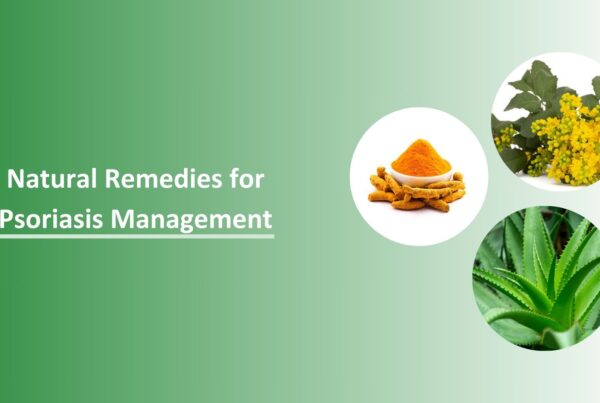Introduction
Every year, on the first Tuesday of May, World Asthma Day is observed worldwide to raise awareness about asthma, a chronic respiratory condition that affects millions of individuals globally. This significant day serves as a platform to educate, advocate, and mobilize efforts to improve asthma care, support research, and enhance the quality of life for those with asthma.
Why World Asthma Day is Celebrated?
World Asthma Day is celebrated to highlight the impact of asthma on individuals, families, and communities, and to promote asthma awareness and education. It aims to address the misconceptions surrounding asthma, reduce stigma, and encourage dialogue about effective asthma management and prevention strategies.
By uniting healthcare professionals, policymakers, advocacy groups, and individuals affected by asthma, World Asthma Day seeks to foster a supportive and informed global community dedicated to combating this prevalent respiratory condition.
Empowering Asthma Education: World Asthma Day 2024
The theme for World Asthma Day 2024, “Asthma Education Empowers,” underscores the importance of global collaboration in addressing the challenges faced by asthma patients. It emphasizes the collective effort needed to ensure that individuals with asthma can lead full and active lives. Established in 1998 by the Global Initiative for Asthma (GINA), World Asthma Day is observed annually on the first Tuesday of May. This initiative aims to raise awareness about asthma as a significant public health issue and improve asthma management and care worldwide.
What is Asthma?
Asthma, a chronic respiratory ailment, manifests through airway inflammation and constriction, often resulting in wheezing, coughing, chest tightness, and breathlessness. This prevalent condition impacts millions globally, with severity ranging from mild to severe. Triggers like allergens, infections, pollution, exercise, and stress commonly induce asthma symptoms. Managing asthma effectively requires a multifaceted approach encompassing medication, lifestyle adjustments, and trigger avoidance to mitigate exacerbations.
Asthma Prevalence: A Comparative Analysis between India and Global Trends
Asthma prevalence in India significantly surpasses global averages. Approximately 2.05% of the Indian population is affected by asthma, totaling around 17.23 million individuals nationwide. The Global Burden of Disease (GBD) study indicates a total asthma burden of 34.3 million in India, accounting for 13.09% of the global burden. Asthma also contributes to 27.9% of disability-adjusted life years (DALYs) among Indians.
Globally, asthma prevalence continues to escalate, with an estimated 262.41 million prevalent cases worldwide in 2019. Variations exist in age-standardized prevalence rates across countries, with the United States, the United Kingdom, and Portugal exhibiting some of the highest rates per 100,000 individuals. Conversely, nations like Nepal, Lesotho, and Bangladesh demonstrate lower prevalence rates. The stark contrast in asthma prevalence underscores the substantial impact of the condition in India compared to global averages.
Genetic Threads of Allergic Asthma
Allergic asthma may have a hereditary component, with the potential to be passed down through families, although the exact inheritance pattern remains unclear. Individuals carrying mutations in certain genes associated with allergic asthma are at a higher risk of developing the condition than directly inheriting it. This suggests a genetic predisposition to allergic asthma, highlighting the importance of understanding and managing potential risk factors within familial contexts.
Signs and symptoms
The signs and symptoms of asthma can vary from person to person but commonly include recurrent episodes of:
- Wheezing
- Coughing, especially at night or early morning
- Shortness of breath
- Chest tightness or pain
Asthma symptoms can be triggered by various factors, including allergens (e.g., pollen, dust mites), respiratory infections, air pollution, exercise, and stress. Understanding and identifying these triggers are essential for effective asthma management.
Treatment and Management of Asthma
A comprehensive approach to asthma treatment encompasses various medications and strategies to control symptoms and prevent exacerbations. Key insights from the sources provided include:
- Medication Management:
- Quick-Relief Medications: Immediate relief is provided by short-acting beta-agonists like albuterol, anticholinergics, and oral corticosteroids.
- Long-Term Control Medications: These aim to prevent symptoms and reduce airway inflammation, with inhaled corticosteroids being the most effective.
- Combination Inhalers: These combine reliever and preventer medications for enhanced asthma control.
- Asthma Action Plan:
- Collaborating with healthcare providers to develop an asthma action plan is crucial. This plan outlines treatment, medications, and steps to take during an asthma attack or worsening symptoms.
- Biologic Therapies:
- Severe asthma cases may benefit from biologic therapies like omalizumab, benralizumab, mepolizumab, reslizumab, and tezepelumab-ekko.
- Lifestyle and Home Remedies:
- Alongside medications, lifestyle changes such as trigger avoidance, regular exercise, weight management, and addressing coexisting conditions are essential for symptom management.
- Other Treatments:
- Advanced treatments like bronchial thermoplasty or biologic therapies may be considered for severe cases resistant to standard treatments.
- Complementary therapies like breathing exercises and acupuncture have been suggested but require further evidence to support their effectiveness.
In summary, a personalized approach to asthma treatment integrates medications, lifestyle adjustments, and advanced therapies to effectively manage symptoms and enhance the quality of life for asthma patients.
Global Asthma Treatment Market: Size, Growth, and Regional Insights
The global asthma treatment market has witnessed substantial growth in recent years, with a projected increase in market size from USD 18.08 billion in 2019 to USD 32.81 billion by 2032, showcasing a CAGR of 4.6% during the forecast period. Various reports indicate optimistic forecasts for the market, with estimates ranging from USD 34.5 billion to USD 26.41 billion by 2031 and 2033, respectively.
North America currently dominates the market, accounting for a significant portion of the global market size, but the Asia Pacific region is poised for accelerated growth due to factors like high asthma prevalence and increasing environmental pollution. Driving factors include the rising demand for effective therapeutics and the development of innovative treatments, such as biologics.
However, challenges like the high cost of medications and underdiagnosis of asthma pose restraints to market growth. Overall, the global asthma treatment market is set to expand significantly, propelled by the increasing prevalence of the condition and advancements in therapeutic options, particularly in North America and the Asia Pacific region.
Preventing Asthma Attacks
To prevent asthma attacks, individuals can implement several strategies outlined in the provided sources.
- Firstly, identifying and avoiding asthma triggers, ranging from air pollution to pet dander, is crucial for minimizing the risk of attacks.
- Consistent adherence to prescribed asthma medications is equally important, as it helps control inflammation and symptoms.
- Developing an asthma action plan with healthcare providers guides managing worsening symptoms or attacks effectively.
- Additionally, utilizing air filtration systems with HEPA filters, maintaining optimal humidity levels, and considering immunotherapy for allergen-triggered asthma can further aid in preventing attacks.
- By incorporating these preventive measures, individuals can reduce the frequency and severity of asthma attacks, ultimately improving disease management and enhancing their quality of life.
Global Initiatives for Asthma Awareness
On World Asthma Day, global events promote asthma awareness and advocacy by:
- Educational workshops on asthma management.
- Community health fairs and screenings.
- Social media campaigns like #WorldAsthmaDay.
- Advocacy for policy changes.
- Fundraising for research and patient aid.
Conclusion
World Asthma Day underscores the profound global significance of asthma and underscores the critical need for heightened awareness, enhanced education, and advocacy for improved asthma management. Through collective action, we aim to advance toward a future where asthma is comprehensively understood, effectively managed, and ultimately preventable.
Let us persist in our support for individuals living with asthma, empower communities through knowledge dissemination, and endeavor towards a world where asthma ceases to impede health and well-being.
Written By
Aswini PriyaMedical Content Writer
Reviewed By
Dr. AnchalMedico Expert
Last Updated
07 May 2024 | 9:00 AM (IST)










